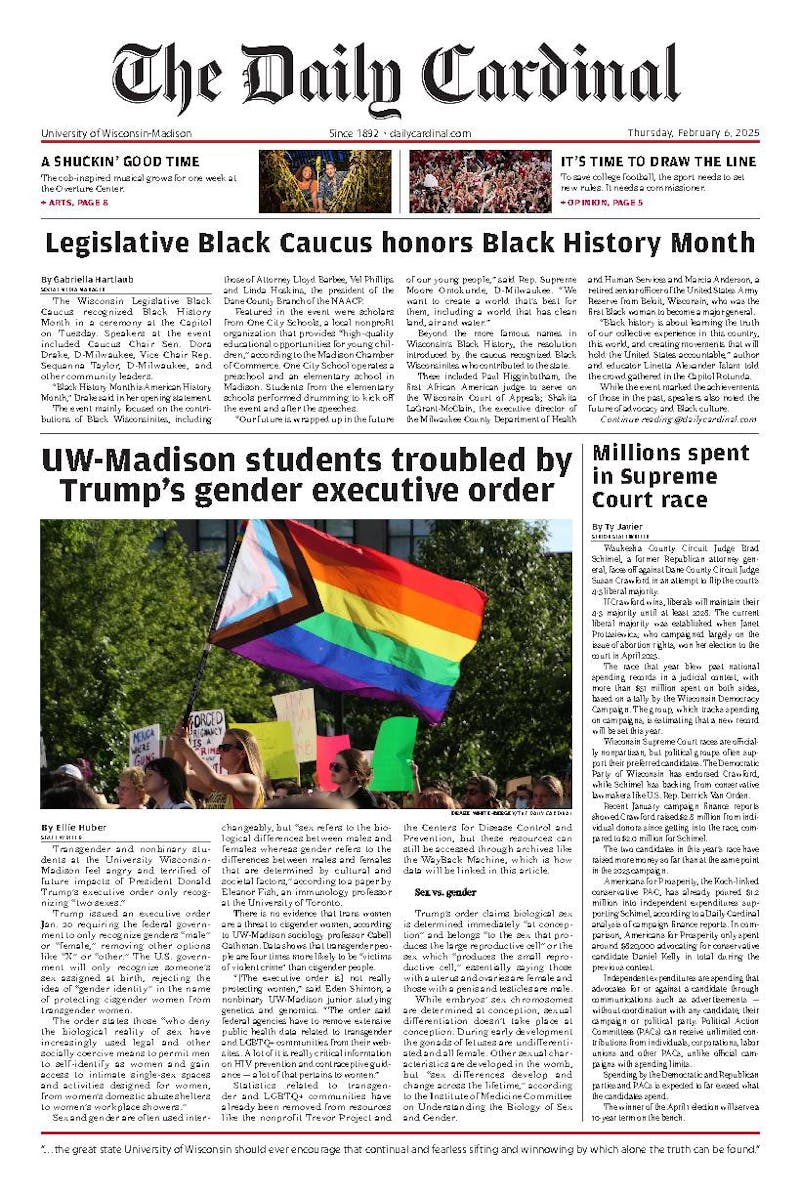The Democratic senators of Wisconsin plan to jack up the state's minimum wage with their ""Wisconsin Families First"" agenda.
The proposed bill includes a minimum wage increase from $6.50 an hour to $7.25 an hour effective Sept. 1, 2007. The bill also proposes yearly minimum wage adjustments in accordance with inflation rate influxes.
An estimated 100,000 Wisconsinites work at minimum wage.
""Eighty percent of those 100,000 now making the minimum wage are adults, and most of them are women,"" said state Sen. Rob Decker, D-Schofield, spokesperson Karen Lynch. ""The change would give a pay raise to a total of 150,000 workers earning the minimum wage or slightly more.""
State Senate Majority Leader Judy Robson, D-Beloit, said while corporations regularly report record yearly earnings, many in the working class struggle to make ends meet.
""Too many Wisconsin families are working longer hours and still living paycheck to paycheck, hoping to keep their financial heads above the water,"" Robson said in a statement.
Working families are not the only group affected by the low minimum wage.
""Students have rising costs just like everyone else does, so if the minimum wage doesn't go up for them, they have to make ends meet with the same amount of money as their costs go up,"" Lynch said.
UW-Madison freshman Aaron Hendricks, a three-year minimum wage earner in high school, said he questions whether working people actually reap the supposed benefits of a minimum wage hike.
""The more minimum wage goes up, the more the cost everything else goes up. It doesn't help you because everyone else is getting the same amount of raise,"" Hendricks said.
Republican senators are taking a different approach to aiding the low-income Wisconsinites.
""A higher minimum wage leads to a fewer number of jobs created,"" said Mike Prentiss, the spokesperson for Senate Minority Leader Scott Fitzgerald, R-Juneau.
Republicans argue that when you raise the minimum wage, employers no longer have the funds to employ the same number of people
""The biggest obstacle to bringing good paying jobs to our state is not the minimum wage, but rather our high tax burden and litigation climate,"" Prentiss said.





